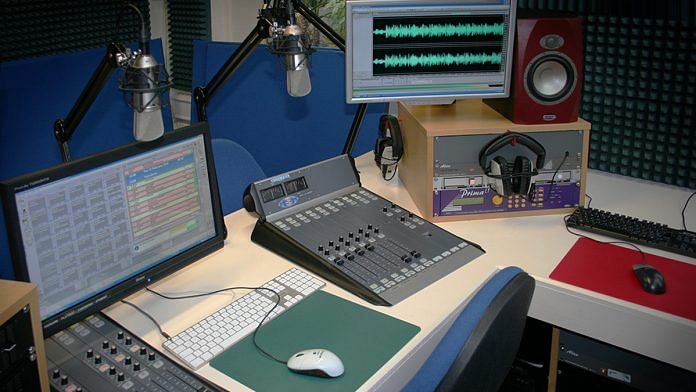New Delhi: The Narendra Modi government has plans to start “internet-run” community radio stations from India’s diplomatic missions as an exercise in soft power, ThePrint has learnt.
“The idea is to tell India’s story better,” a top official of the Ministry of Information & Broadcasting said.
“The programmes could include quiz shows, discussions and other entertainment and utility-oriented programmes, focusing on Indian culture and heritage,” the official added. “It will have a role in India’s global outreach and soft diplomacy.”
The project will be carried out by Indian missions in collaboration with Prasar Bharati, and the content aimed at the diaspora as well as foreigners, the I&B official said.
Highly-placed government sources told ThePrint that the I&B ministry has been in talks with the external affairs ministry to chalk out the modalities of the plan. A timeline for the project is only likely to be available once the broader framework is worked out.
To ‘check bias’
Community radio constitutes small-scale broadcasts that cater to a certain group with a common interest, for example, a university or an NGO.
Starting a community radio station in India requires a series of government clearances for physical infrastructure like transmitters, with the broadcast range restricted to 5 kilometres. However, community radio services transmitted via the internet will not need any permissions as they will be streamed over the web.
The stations planned by the Modi government would aim to project Brand India and the country’s achievements to the world.
They assume significance in light of the Modi government and BJP’s allegation that the reportage of western media is biased.
The allegations resurfaced this month vis-a-vis the coverage of BBC, Reuters and other international media outlets on Kashmir amid the communication blackout imposed after the abrogation of Article 370.
Going global
The community radio stations are part of a broader push by the Modi government to take its message directly to the global audience, a task entrusted to the I&B ministry.
For example, PM Modi’s recent Independence Day speech was translated into 15 foreign languages by the All India Radio, including Japanese, Spanish and German.
From this month, Prasar Bharati aims to translate and broadcast PM’s monthly radio address Mann Ki Baat in several foreign languages.
The government also plans to launch ‘Doordarshan International’ for an international audience and project India prominently in film festivals.
Also read: In 2018, Team Modi plans to unleash uber-nationalism on your television & radio
Responding to the report, Abhinav Prasoon, deputy director (Media & Communications), PIB, Ministry of Information & Broadcasting, writes:
The report is completely baseless, bereft of facts and appears to be a figment of imagination. While the Ministry of External Affairs is responsible for India’s global outreach, there is no proposal of Ministry of Information & Broadcasting to open ‘internet-run community radio stations’ from India’s missions abroad. The report is based on technological presumptions which violate the basic definition of Community Radio.
It mischievously interrelates issues tantamounting to sensationalism of sensitive subjects like Kashmir reportage in Western media. While routine steps are regularly taken by the government keeping in mind the vision and strategy for global outreach, the article hypothetically fabricates India’s plans for the same.
The article quotes ‘top official’ of I&B ministry to give an appearance of credibility to the facts presented but does not attribute it to a particular individual and thereby lacks credence. It speculates on the policies and future initiatives without any factual basis.
ThePrint reporter Amrita Nayak Dutta responds: The report is based on official communication between four government departments, including the Information & Broadcasting ministry, the Ministry of External Affairs, Prasar Bharati and the PMO, which ThePrint has accessed. This information has also been corroborated by government officials. ThePrint stands by the report.




India’s global image needs embellishment. However, unclear if sarkari spin and PR can get the job done. When the Editorial Board of the New York Times or the Washington Post renders an editorial, or The Economist begins to form a consistent editorial stance, that carries weight with the world’s decision makers and elite. Beyond the pay grade of ANI.